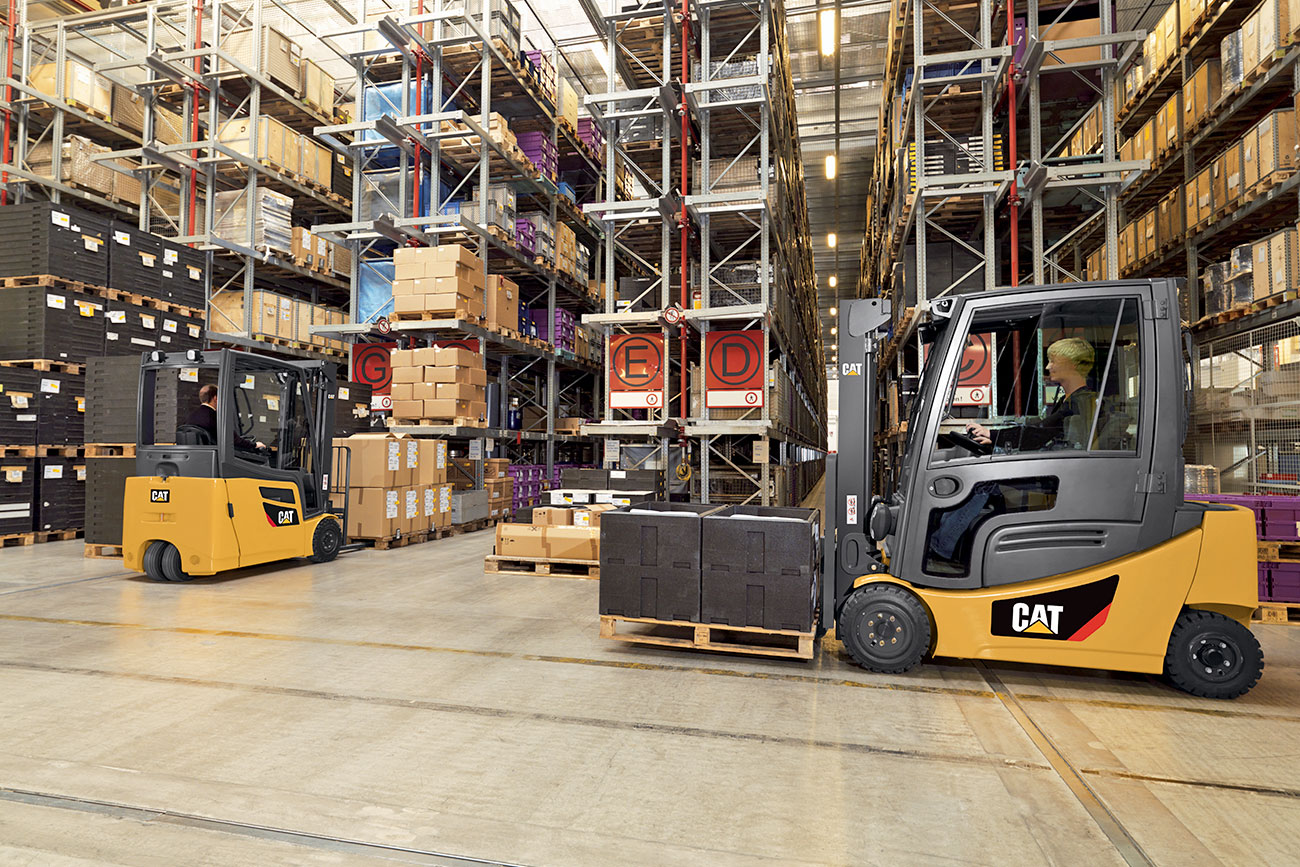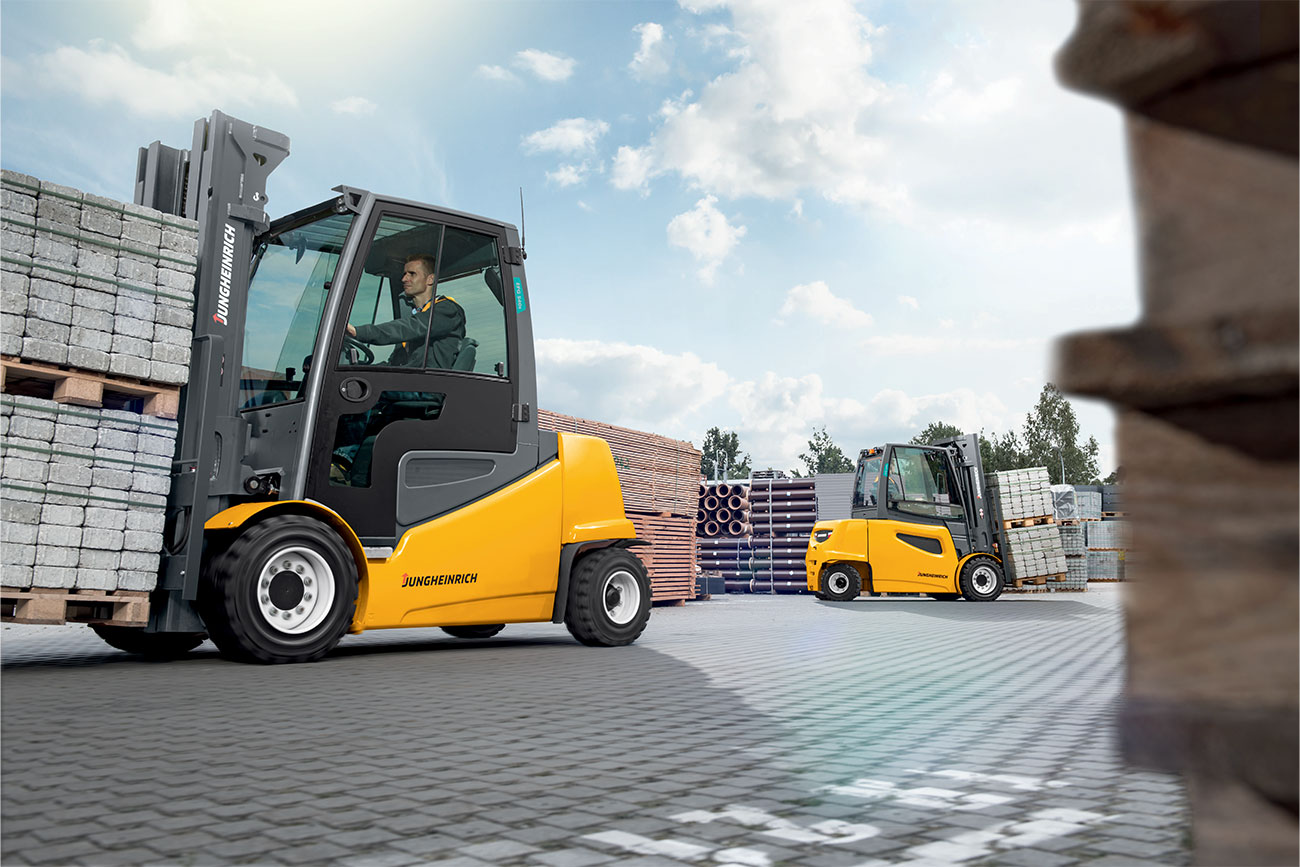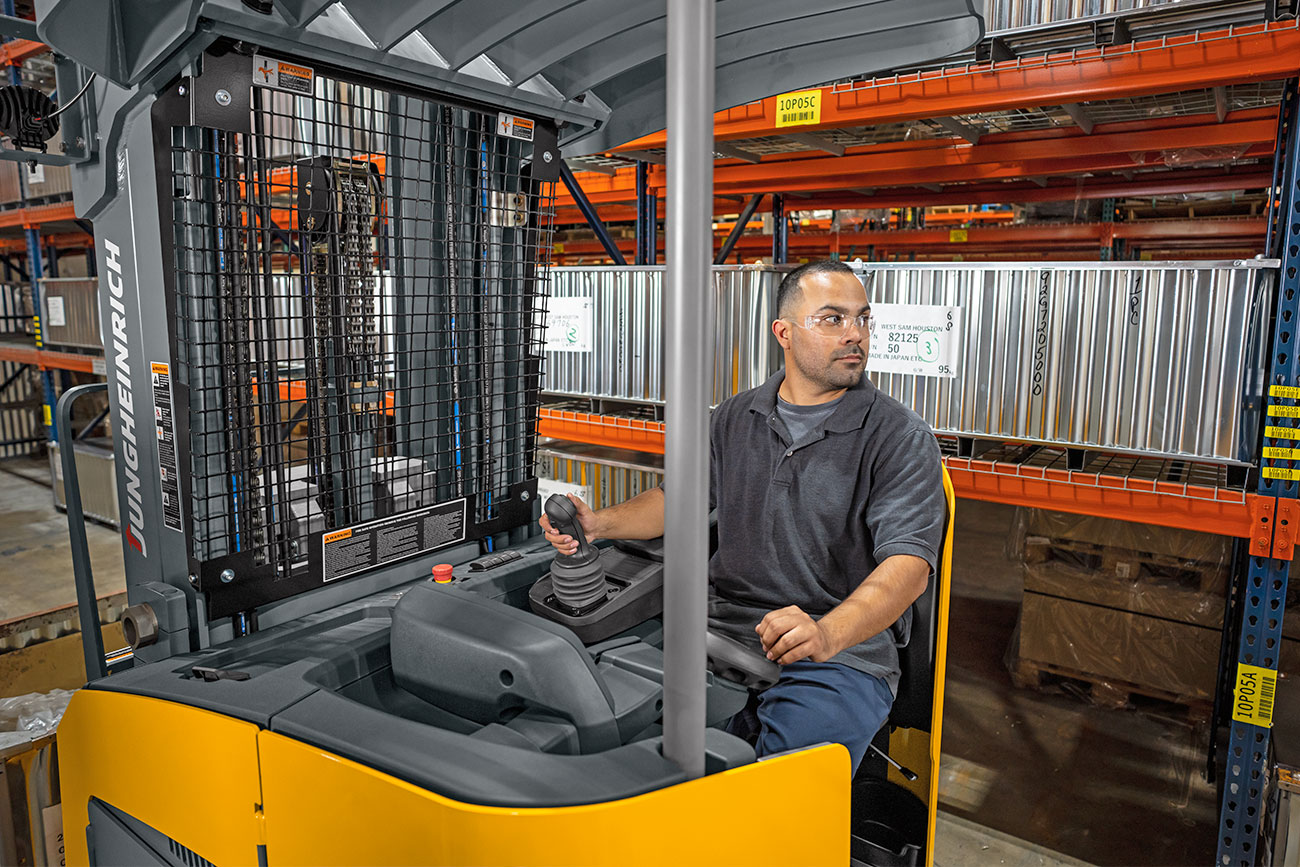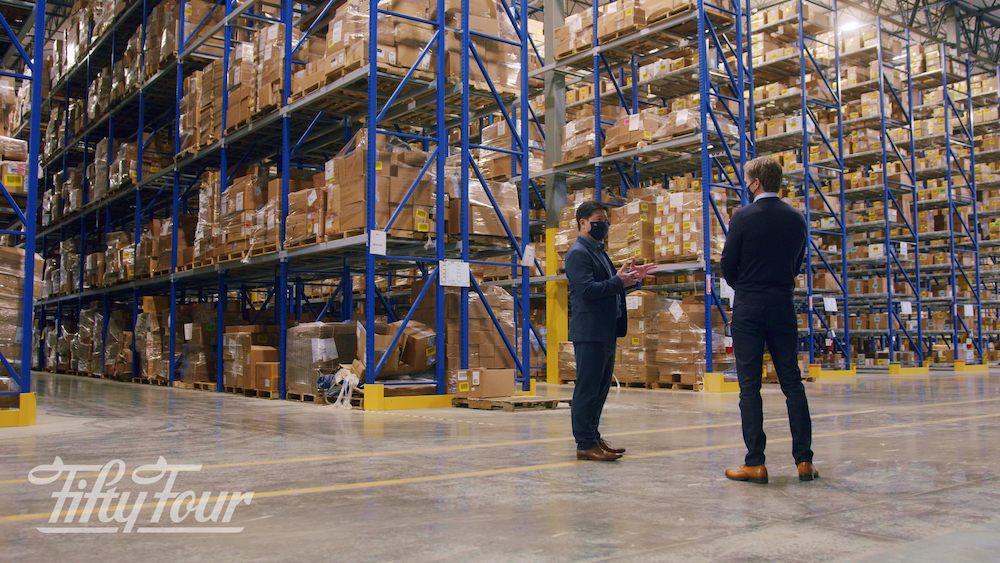
Although not everyone can agree that climate change is happening and causing an air quality issue, most of us can agree that we need to take some steps to make it healthier to live and breathe. It’s distressing to learn that air pollution is invasive throughout the world and is said to be responsible for 6 million premature deaths. You can be a part of changing these statistics, even if only in your own warehouse.
According to the U.S. Dept. of Energy, the U.S. is importing roughly 3 percent of the fuel it consumes – a large part of that can be attributed to the transportation industry, but the trend for importing fuel is on a downward slope. That’s good news, according to the DOE, and can be attributed in part to an increased use in electrically-powered vehicles. This contributes to our nation’s energy security.
If your business is ready to look at ways you can contribute to healthier air and working conditions, you might want to look at going electric. Making the switch to electric can also save you money, help you retain employees and make an impact to our nation’s security in the long run.

How Going Electric Changes Air Quality
We’ve learned that burned fuels, such as gasoline and diesel, emit toxic gases into the air, including carbon monoxide, nitrogen dioxide, particles and sulfur dioxide. These gases are harmful to our health in a variety of ways, such as causing heart and lung diseases, plus certain cancers. More than half of these toxic gases are emitted via mobile means, such as cars, trucks, airplanes and, yes, material handling equipment.
Making the switch to electric will enable you to provide a cleaner environment for yourself and your employees. What kind of material handling equipment is available in electric power? Almost all forklifts, including core models, 3-wheel, turret, stand-up rider, reach trucks, order picker and narrow aisle. Today’s electric forklifts work well in indoor and outdoor applications.
The Noise Factor
You may or may not have known that OSHA requires a workplace to be below 85 decibels averaged over eight working hours. You can download a simple app that will let you know on your phone if your workplace is possibly creating hearing damage to you and your employees. The on-the-floor test is if you have to raise your voice to be heard by someone standing 3 feet away.
Hearing damage caused by constant exposure to over-the-top noise can be permanent, so if you do nothing else, you should supply and require your employees to wear some form of hearing protection if your operation is noisy. Some workplaces are just noisy and there’s not much that can be done to change that, except wearing some form of Hearing Protection Device (HPD). But what if you could change the noise level and in so doing, help the environment, as well?
When you remove the diesel engine and replace it with a battery pack, you instantly reduce the noise level that machine produces. It’s no longer necessary to put in those ear plugs or pop on those noise-cancelling headphones. Because noise pollution and the ensuing damage is not something that is noticed immediately, it can be hard to understand why it’s so important to address it now.

Operator Ergonomics
Much of what we’ve been talking about has the safety and working conditions of your employees at the base. But it’s worth devoting a little bit of time to taking a harder look at how installing electric material handling and DC warehouse equipment into your operations will benefit your employees, which, in turn, will benefit you.
First of all, let’s dive into operator ergonomics, or how conditions can have a positive or negative effect on the productivity of workers. We all want our employees to be as productive as possible. We understand a lot more now that new light has been shined on how taking care of our workers equates to taking care of ourselves. Without a healthy and happy workforce, your business won’t go far.
Employees who feel like they are valued and that their boss cares about their well-being are much more likely to be productive and efficient. Let’s take a look at just a few ways that going electric can impact your material handling and DC warehouse workforce:
- Increased air quality – This is a big one because studies have proven that constant exposure to the toxins produced by gas and diesel engines causes all kinds of health issues. If someone in your workforce is already sensitive, this kind of exposure may cause an asthma attack.
- Reduced noise – Even though hearing damage accumulates over time and the worst of it isn’t immediately obvious, when an employee goes home every day with his or her ears ringing, it tends to make one think hard about going back the next day.
- Less fatigue – Let’s face it. Diesel engines – and even some gasoline engines – are pretty rough on the operator over the span of several hours. They shake and vibrate, causing operator fatigue that can be hard to overcome.
With today’s material handling and DC warehouse workforce shortages, anything we can do to promote workplace safety and comfort is going to help us recruit and retain employees. Choosing to integrate electric equipment into your operations can be a step in the right direction.
We have nearly 70 years of experience and more than 350 professionals in 11 cities to help material handling companies use innovation, optimization and integration to find their MaxOP (maximum operation potential). Contact us today to find out how we can help you transform your operations.
